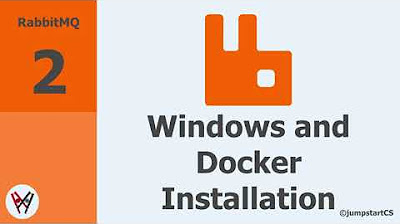Gleam 1.0 Is Out! (I think I'm in love...)
Summary
TLDRGleam, a new programming language built on the Erlang VM, has released its first stable version, Gleam 1.0.0. Designed for type safety and concurrency, Gleam aims to simplify software development with a small, consistent language surface area. It offers robust static analysis, a practical type system, and a focus on developer productivity and sustainability. The language's features include immutability, pattern matching, and a unique approach to type definitions and function handling. Gleam's community-driven development and sponsorship model highlight the project's commitment to long-term support and growth.
Takeaways
- 🌟 Gleam 1.0.0 has been released, marking the first stable release of the language.
- 🛠️ Gleam is built on the Erlang VM (BEAM), inheriting its benefits and focusing on type safety and a practical type system.
- 🚀 The language aims to make software development predictable, stress-free, and enjoyable, with a consistent and small surface area for easy learning.
- 🔍 Gleam emphasizes type safety, avoiding null values, implicit conversions, and exceptions, providing clear error messages.
- 🔄 It supports concurrency with ease, similar to Erlang and Elixir, making it suitable for building scalable systems.
- 🔧 Gleam's compiler serves as a programming assistant, aiding in refactoring and reducing the risk of breaking changes.
- 🌐 Gleam code can run on JavaScript runtimes, allowing for broader application possibilities, including in-browser execution.
- 📚 The language includes a code formatter and language server, promoting a consistent coding style and improving developer experience.
- 💼 Version 1 signifies stability and readiness for production use, with a commitment to maintaining backward compatibility.
- 🤝 The Gleam community is actively contributing to the project, with a focus on impactful and meaningful development.
Q & A
What is Gleam and why is it significant?
-Gleam is a programming language designed for building typesafe systems that scale. It is significant because it is built on top of the Erlang VM (BEAM), which provides the same benefits as Elixir, but with a stronger focus on type safety and a practical type system.
What are the key features of Gleam's type system?
-Gleam's type system includes no null values, no exceptions, clear error messages, and a practical approach to type safety. It is inspired by languages like Elm, old Camo, and Rust, offering robust static analysis and a compiler that serves as a programming assistant.
How does Gleam handle concurrency?
-Gleam leverages the concurrency capabilities of the Erlang VM, allowing for easy implementation of concurrency with features like process spawning and message passing. This makes it suitable for building high-performance, concurrent systems.
What does Gleam's version 1.0.0 release signify?
-The release of Gleam 1.0.0 marks the first stable release of the language, indicating that it is now suitable for production use and that the developers will prioritize maintaining backward compatibility.
How does Gleam differ from other languages in terms of performance focus?
-While many modern languages focus on raw performance, Gleam emphasizes the importance of concurrency and the ability to handle multiple cores effectively. It aims to solve performance issues related to concurrency rather than单纯的追求语言的执行速度.
What is the Gleam standard library and how does it relate to the V1 release?
-The Gleam standard library is a collection of core packages maintained by the Gleam team. It is set to receive an accompanying V1 release, ensuring that the standard library is compatible with the new version of the language.
How does Gleam support developer productivity and sustainability of the project?
-Gleam aims to improve developer productivity by continuously enhancing the language server, libraries, and developer experience. For project sustainability, Gleam relies on community contributions and financial support from sponsors like Fly, ensuring that the project can evolve without being limited by niche or unimportant tasks.
What are some of the language design principles that Gleam adheres to?
-Gleam adheres to principles like simplicity, consistency, and a small surface area, making it easy to learn and understand. It also prioritizes readability and maintainability of code, with a focus on having one way of doing things.
How does Gleam handle pattern matching and case expressions?
-Gleam uses pattern matching in its case expressions, allowing for concise and expressive code. It supports matching on various data structures like lists and tuples, and the compiler is smart enough to infer types and handle cases where certain arguments are not used.
What is the role of the Gleam community in the development of the language?
-The Gleam community plays a crucial role in the development of the language. The core team actively seeks contributions from the community, and the project's sustainability relies on the efforts of part-time volunteers and sponsors like Fly, who provide financial support.
Outlines

Dieser Bereich ist nur für Premium-Benutzer verfügbar. Bitte führen Sie ein Upgrade durch, um auf diesen Abschnitt zuzugreifen.
Upgrade durchführenMindmap

Dieser Bereich ist nur für Premium-Benutzer verfügbar. Bitte führen Sie ein Upgrade durch, um auf diesen Abschnitt zuzugreifen.
Upgrade durchführenKeywords

Dieser Bereich ist nur für Premium-Benutzer verfügbar. Bitte führen Sie ein Upgrade durch, um auf diesen Abschnitt zuzugreifen.
Upgrade durchführenHighlights

Dieser Bereich ist nur für Premium-Benutzer verfügbar. Bitte führen Sie ein Upgrade durch, um auf diesen Abschnitt zuzugreifen.
Upgrade durchführenTranscripts

Dieser Bereich ist nur für Premium-Benutzer verfügbar. Bitte führen Sie ein Upgrade durch, um auf diesen Abschnitt zuzugreifen.
Upgrade durchführenWeitere ähnliche Videos ansehen
5.0 / 5 (0 votes)






